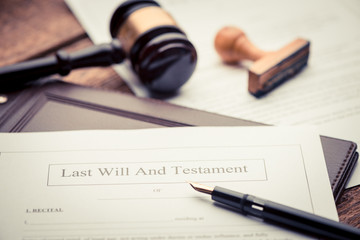Probate is often a necessary process after an individual dies. However, there are different processes depending on the circumstances of the situation and estate. If a loved one has recently passed, understanding the difference between formal and informal probate is important to ensure you have the information necessary to administer the estate as they had planned. Continue reading and consult with a knowledgeable Middlesex County probate lawyer for skilled legal counsel and representation.
What is Probate?
Probate is the legal process that occurs after an individual dies, where the deceased person’s estate is evaluated and assets are distributed to beneficiaries. The process validates a will’s authenticity, pays outstanding debts and taxes, and ensures property and assets are distributed to named beneficiaries or legal heirs.
What is Formal Probate?
Formal probate is the legal process described above when it is supervised by a court. It still works to administer the estate of a deceased person, but matters are heard by a judge and involve court hearings.
Formal probate is often used when there are disputes or if there is a large or complex estate involved. You might file a formal probate if you want to object to the terms of a will, the will is a copy or has handwritten alterations, the terms are not clear, etc. In Massachusetts, formal probate requires a filing fee, surcharge fee, and citation fee, which are $375, $15, and $15, respectively.
What is Informal Probate?
Informal probate is an administrative proceeding and requires less supervision than formal probate. It is processed by an MUPC (Massachusetts Uniform Probate Code) Magistrate, not a judge. There are no hearings for informal probate, and it can be resolved in as little as one week.
Informal probate has a mandatory filing fee and surcharge fee, set at $375 and $15. While this process is generally more efficient and attractive than the possible conflicts associated with formal probate, it is only available if the following is true.
- You have the original will
- You have the official death certificate
- You know the location and identity of all beneficiaries and heirs
- The individual acting as the personal representative has priority for appointment
- Any incapacitated or minor beneficiaries are represented by a guardian or conservator, given that they are not the individual filing for probate
- The court has not required supervised administration
- You do not need a judge to sign an order or final decree
The key differences between formal and informal probate are the use of court supervision, the eligibility requirements for each one, and the process necessary to resolve matters. If you have questions or concerns about the probate process, it is imperative that you secure skilled legal representation. Reach out to an experienced attorney at Mark Liam Gannon, Attorney at Law, today.

